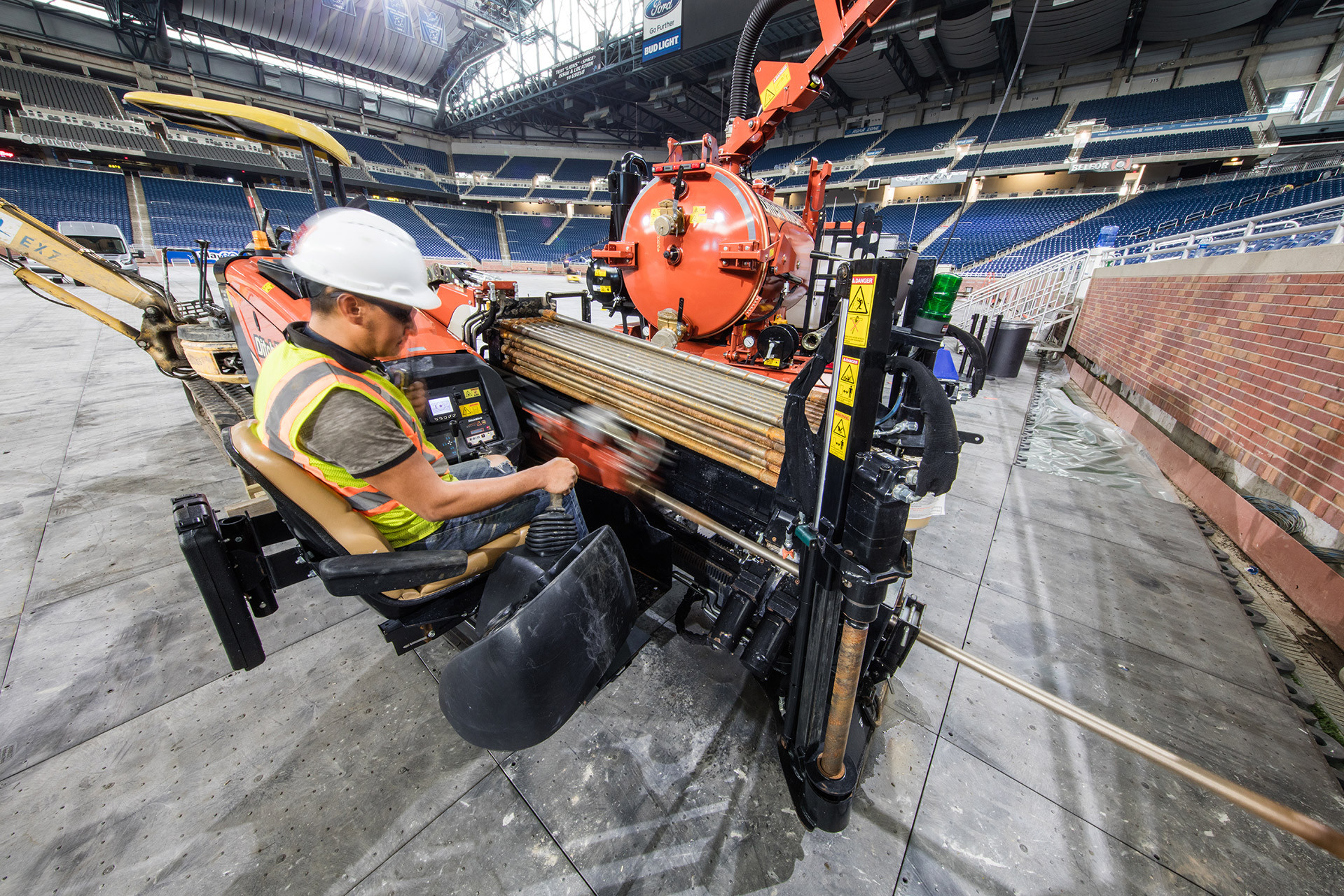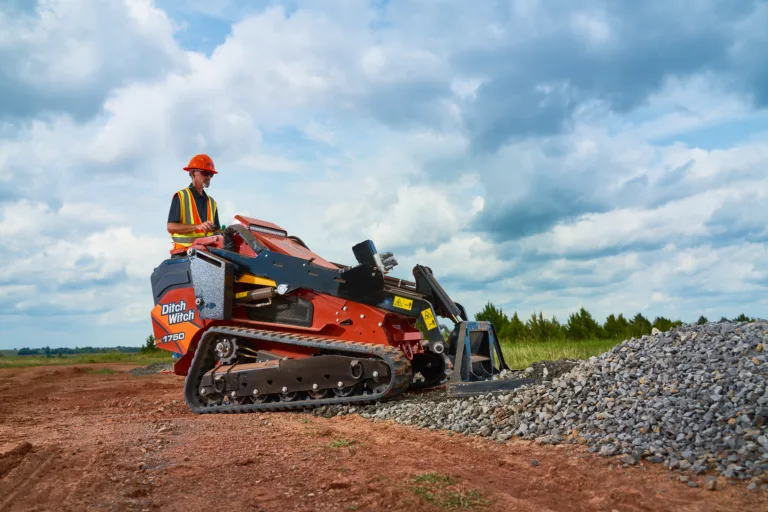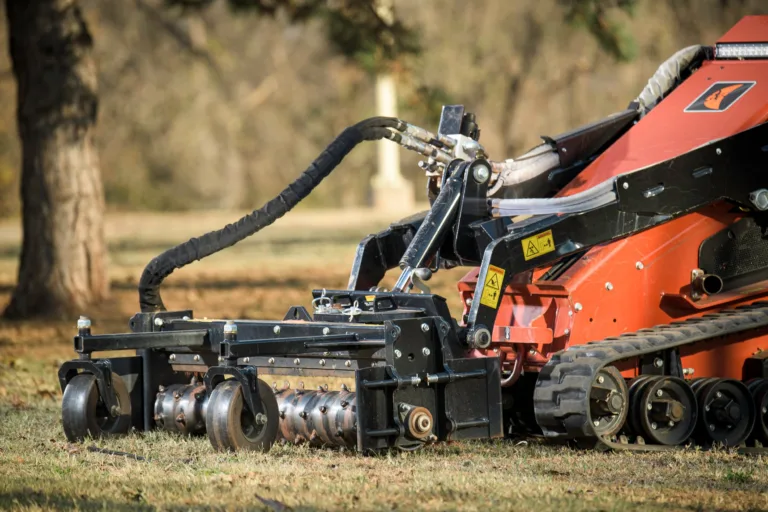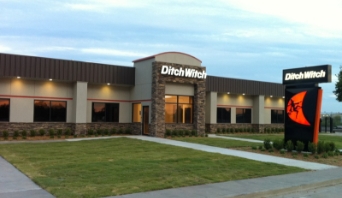In the late 1970s, American households wanted cable television, creating a massive number of projects for utility contractors. The explosion in demand was overshadowed only by the introduction of computers, especially when the internet took center stage as a major data resource. Again, people depended on the utility contractor to make a connection to their neighborhood or business.
Underground Contractors Inc. (UCI) has navigated jobsites during each of the major telecommunication booms. The company was founded in 1976 when Del Mecum Sr. saw the amount of work available to contractors deploying cable. For more than 40 years, the team has built a reputation of superior customer service and jobsite expertise, becoming an industry leader in telecommunication installations across the United States.
Headquartered in Michigan, UCI has worked on the jobsites of all major telecommunication providers nationwide, offering a range of services from initial, project-design decisions to aerial construction. As the industry and telecommunication landscape evolves, the company also keeps up-to-date on the latest and most efficient underground construction equipment.
Digging Into HDD
When the internet gained popularity in the 1990s, users demanded the newest technology but not the inconvenience of its deployment. Neighborhood environments, traffic, business access, and waterways were all impacted as ground was torn up for an installation project. Telecommunication providers began seeking contractors who offered jobsite productivity without long-term disruption.
Meeting those requirements led UCI to invest in one of Michigan’s first horizontal directional drills (HDD) in 1993. The rig helped reduce the amount of time on an installation job while making a minimum impact on the terrain. Fast forward 23 years and UCI now has 20 rigs ranging from 7,000 to 60,000 pounds, equipped to handle short and long bores on diverse jobsites.
After thousands of projects, UCI has learned that a history of hands-on training is what distinguishes contractors. Success on a jobsite is dependent upon the knowledge of the team.
“HDDs increase efficiency on a jobsite and help improve ROI, but it takes a team of experts to get the results expected by telecommunication companies,” said Del Mecum Jr., vice president, UCI. “Building the skills of our operators is central to our continued success. Some of our foremen have been on jobsites for 25 years. They know how to efficiently and effectively use state-of-the-art HDD equipment.”
Training and jobsite experience continues to be a focus for UCI, especially as a new generation of workers enter the industry. When it gets busy, the company knows it can depend on qualified people to successfully manage a project.
For a recent high-profile job, UCI relied on the years of experience navigating challenging jobsites. Superior knowledge, along with a reputation for providing cost-efficient solutions under tight deadlines helped UCI win the contract for their most unique project to-date—work at Ford Field, home of the Detroit Lions football team. This job would end up requiring all the expertise they earned over the years.
Getting Ready for Kickoff
At Ford Field, a Wi-Fi system installed in 2012 gave many spectators the ability to digitally share their Detroit Lions experiences. Verizon operated the system and, at the time, reserved it for only those fans who were also Verizon customers. Others could not connect, limiting their enjoyment of the game.
In 2016, the Detroit Lions and Verizon agreed to collaborate on upgrading the Wi-Fi system to accommodate a higher density of users as well as enhancements made to smartphones and tablets over the past four years.
The plans called for Wi-Fi antennas to be mounted on handrail locations in the stands surrounding Ford Field. First, holes would be drilled down from three access points along each handrail. Then, it required cable to be deployed underground beneath the stands since there was no access to the seating area from below.
Boring so close to the field was complicated. Operators couldn’t use drilling mud because it might dirty the field. By the time the Lions played their next home game, the field had to be in perfect working order.
“When the specifics of the job came out, I knew nothing like this had been done before,” explained Mecum. “The jobsite was one-of-a-kind, and we had to complete it between Lions’ home games. That gave us about two weeks.”
In total, the project required up to 140-foot bore shots along many of the staircases. Operators stopped three times where a hole had been drilled from above. But before shooting out under the staircase, HDD crews first bored a 6-to-7-inch hole into the bulkhead. Once through, they immediately steered the drill bit straight up to run along the staircase.
When shooting out from the bulkhead, another obstacle was encountered—the conditions beneath the ground were unknown. Crews primarily expected clay, but the conditions varied and occasionally gravel was encountered as boring took place. This slowed their work, compressing the project timeframe even more.
Speed and Maneuverability Assist Touchdown
Originally expecting to drill through sand and clay, UCI sent two horizontal directional drills and two support crews. When encountering clay, they can get up to five bores done each day. But when running into gravel, a single bore can take as long as three days.
The unpredictable underground terrain required UCI to add more crews to the project. They were running Ditch Witch HDD rigs, including the JT2020 and JT9.
“The reliability of Ditch Witch drills has made them the cornerstone of our fleet since the 1980s,” said Mecum. “On this project, we used the powerful JT2020 for the tough rock conditions and relied on the compact JT9 to get in the bulkhead and make tight, quick turns. Easy-to-use controls and overall machine versatility was a must-have on such a complicated jobsite.”
The JT9 was helpful for this project. Equipped with a high-performance, air-cooled Tier 4 diesel engine, the 66-hp drill offered enough pullback force for operators to work effectively and efficiently. And as the shortest drill in its class, it can reach and set up in tight spaces, easily maneuver around the jobsite and minimize surface disturbance.
With drills that could handle the unique and tough underground project, UCI completed the Wi-Fi deployment a day ahead of schedule. True to the company’s reputation, they exceeded expectations.
“There has been nothing but praise for the work we accomplished at Ford Field, thanks to the Ditch Witch drills,” said Mecum. “And beyond the leading technology, Ditch Witch dealers offer great support. Our local Ditch Witch dealer has become a trusted partner for our company. They work with you to get parts or resolve problems, whatever is needed. That level of support makes all difference.”
For more information on the Ditch Witch directional drills, please visit http://www.ditchwitch.com/directional-drills.






